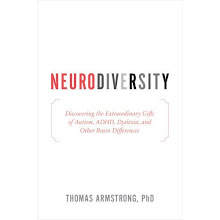Thursday, December 31, 2009
Wednesday, December 16, 2009
Dyslexics Make Great Entrepreneurs
What do Richard Branson, Charles Schwab, and John Chambers, CEO of Cisco Systems Inc., all have in common? Answer: they're all dyslexic. They represent three famous examples of what is becoming increasingly more common in the business world: the presence of entrepreneurs who also happen to be dyslexic. Research carried out by Julie Logan, a professor of entrepreneurship at Cass Business School in London, reveals that more than a third of the U.S. entrepreneurs studied--35%--identified themselves as dyslexic. This compares with only 1% of corporate managers. In an article published in Business Week, William Dennis Jr., senior research fellow at the Research Foundation of the National Federation of Independent Business was quoted as saying: "Entrepreneurs are hands-on people who push a minimum of paper, do lots of stuff orally instead of reading and writing, and delegate authority, all of which suggests a high verbal facility. Compare that with corporate managers who read, read, read." Similarly, Emerson Dickman, president of the International Dyslexia Association, and himself a dyslexic, noted: "Individuals who have difficulty reading and writing tend to deploy other strengths. They rely on mentors, and as a result, become very good at reading other people and delegating duties to them. They become adept at using visual strengths to solve problems." One of the implications of this study is that children and adults who are identified as having dyslexia should also have their strengths identified, and if entrepreneurship is observed, be given opportunities to develop this talent.
Autistic Children Score High on Raven's Intelligence Test
 Intelligence tests have often been used to differentiate "high functioning" from "low functioning" individuals with autism. But a recent study published in the journal Psychological Science suggests that "low functioning" children with autism may in fact score much higher if an alternative intelligence test--the Raven's Progressive Matrices-- is used instead of the more conventional Wechsler Intelligence Scale for Children (WISC). This test (see image above for sample item) assesses abstract reasoning. The scores on the Raven's were on average 30% higher, and in some cases more than 70% higher than their scores on the WISC. The Raven's Progressive Matrices is considered the most complex single test of intelligence in the scientific literature. These new findings suggest that many autistic children who have thus far been labeled "mentally retarded," may now be considered of average or above average intelligence, and thus be seen in terms of their strengths as well as their difficulties.
Intelligence tests have often been used to differentiate "high functioning" from "low functioning" individuals with autism. But a recent study published in the journal Psychological Science suggests that "low functioning" children with autism may in fact score much higher if an alternative intelligence test--the Raven's Progressive Matrices-- is used instead of the more conventional Wechsler Intelligence Scale for Children (WISC). This test (see image above for sample item) assesses abstract reasoning. The scores on the Raven's were on average 30% higher, and in some cases more than 70% higher than their scores on the WISC. The Raven's Progressive Matrices is considered the most complex single test of intelligence in the scientific literature. These new findings suggest that many autistic children who have thus far been labeled "mentally retarded," may now be considered of average or above average intelligence, and thus be seen in terms of their strengths as well as their difficulties.
Subscribe to:
Posts (Atom)

